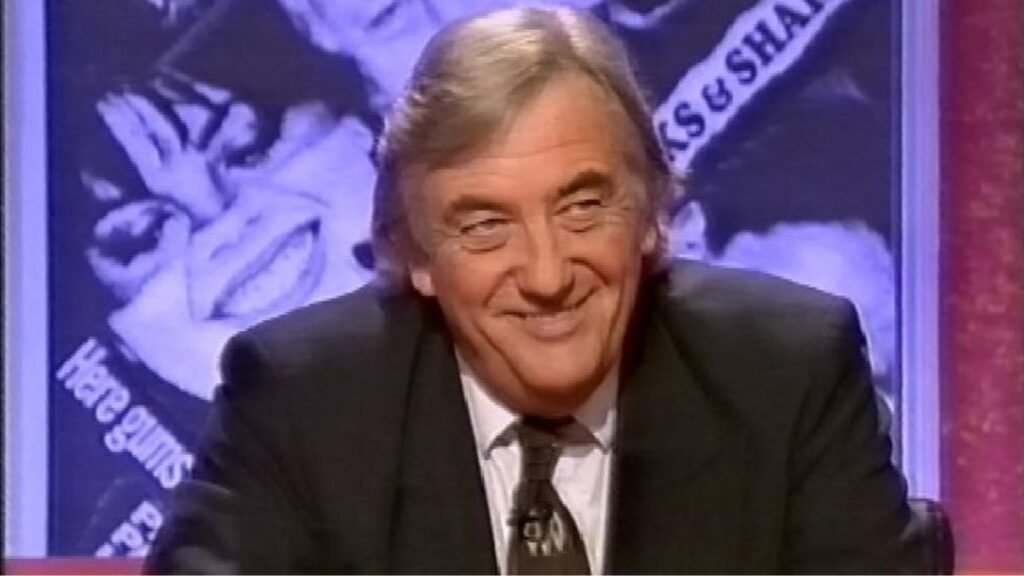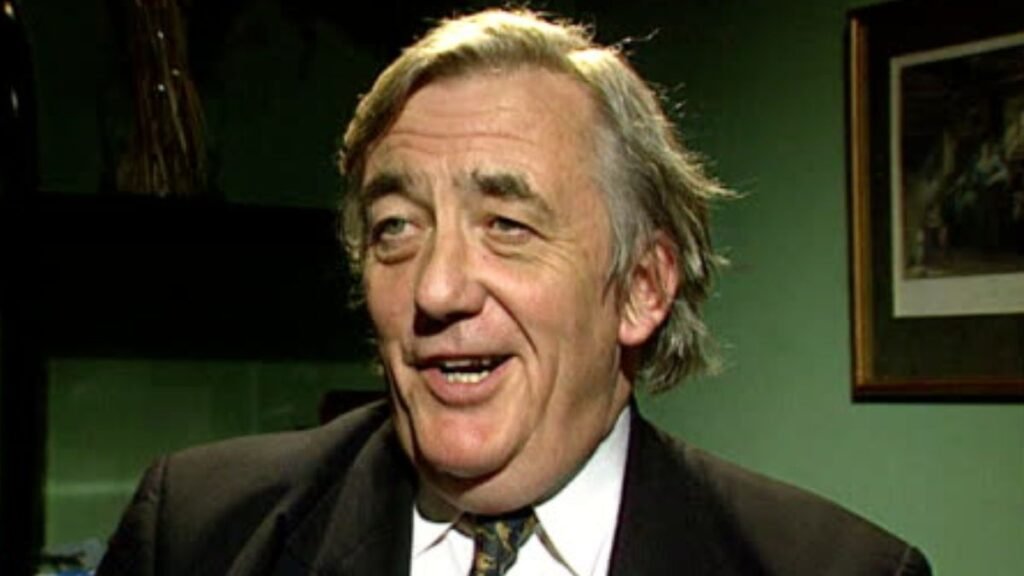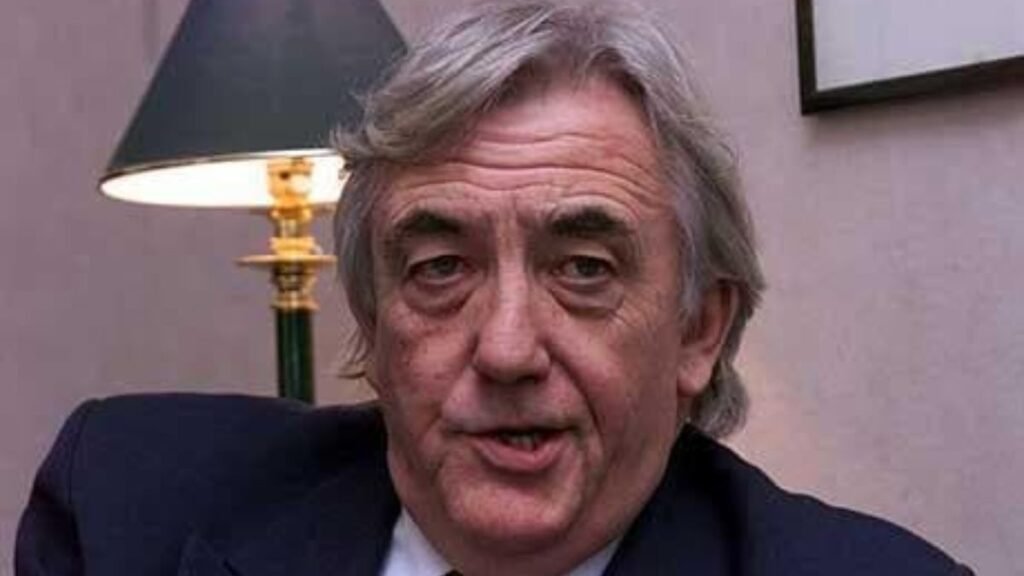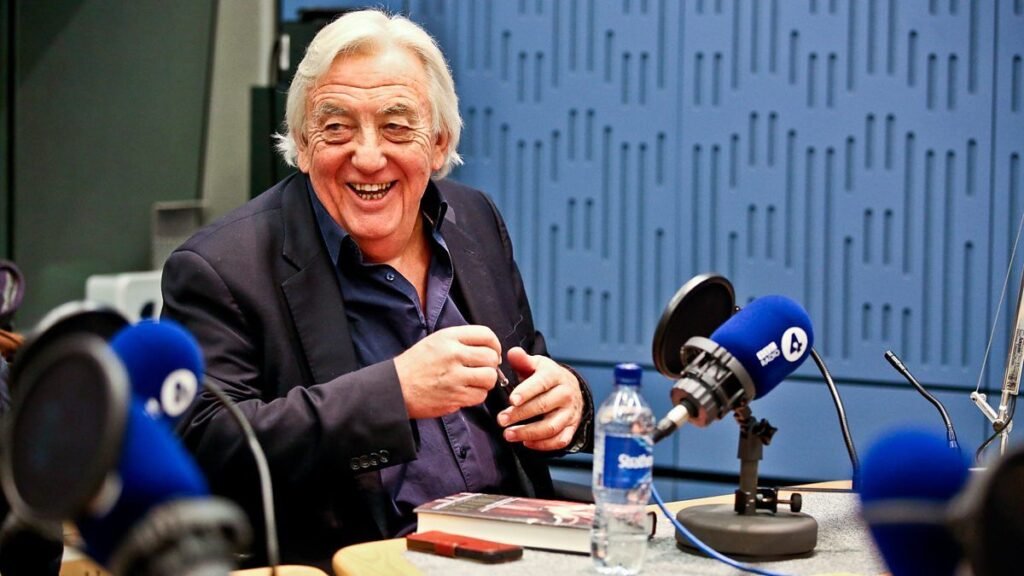As a part of 1997’s Labour landslide, Bob Marshall-Andrews QC was elected to parliament for Medway, having failed to capture the seat in 1992. Martin Bell, also elected in 1997, remarked that Labour never would have selected him had they thought they would win the seat.
Despite being a member of the Socialist Campaign Group, for the first year, he was a New Labour loyalist, not rebelling until June 1998. He would rebel the whip 32 times in the 1997-2001 parliament.
1998 also saw the construction of Malator, colloquially known as the “Teletubby House”, Bob’s Earth house in Pembrokeshire, Wales.
In 2001, journalist Simon Hoggart followed Bob Marshall-Andrews on the election campaign trail, where he described the MP’s deliberately brutish, aggressive canvassing technique. After he insulted one voter, who he called a racist and demanded not to vote for him, he wrote: “Mr Marshall-Andrews’s majority is 5,326. At the present rate of attrition, he should have it down to zero by polling day.”
After re-election, in the 2001-2005 parliament, he made some of his greatest stands against his own party. During this time, he voted against his government 102 times.

Andrews’s two most notable rebellion topics were over Iraq and civil liberties.
In March 2003, under Tony Blair’s leadership, Britain would join the invasion of Iraq. Bob Marshall-Andrews was then perhaps the biggest inter-party voice of opposition against the move, his voice projected by a series of appearances on Have I Got News For You.
He explained: “Those of us who oppose this war do so because we believe that it is ill-proven and unnecessary.” He further attacked the United States’s leading role in the conflict, citing their notorious interventions in South America, the Middle East, and Asia.
In 2006, he was one of 12 Labour MPs who supported a motion by the Liberal Democrats and Plaid Cymru for an inquiry into the Iraq War, alongside fellow notable rebels Glenda Jackson, Bob Wareing, and Jeremy Corbyn.
In a 2010 piece for The Guardian, BMA criticised the scrutiny provided by the Chilcott inquiry.
As for civil liberties, the libertarian left-winger Andrews has been described as “the single greatest critic, opponent and rebel ringleader of [his] party’s proposed legislation, in so far as it threatened our civil liberties.”
Indeed, he voted against his own party’s anti-terrorism measures on 43 occasions, helping inflict the first defeat upon Blair’s government over plans for a 90-day detention period.

In 2003, he tabled an early day motion opposing government plans to limit trials by jury. The QC explained: “The erosion of the 800-year-old right to trial by jury in serious cases is wholly unjustified.” He considers his victory in stopping such a measure as one of his greatest political contributions.
After seeing his speech at the 1996 Labour conference, Andrews came to the realisation that Tony Blair had become “dangerously delusional.” He once remarked on national television that one would have to “go back to Wellington before one can find a Prime Minister who has treated his own people with more contempt and deceit.”
On the night of the 2005 election, Andrews made a famous speech on the BBC’s broadcast. Believing he had lost his seat, he made a scathing criticism of Blair and the Iraq War, haemorraging votes. He quipped: “I have not the slightest doubt that on a very bad night, my going in this constituency will be one of the very few things that will cheer the prime minister up.” As it happens, he won by a margin of 213 votes.
His outspoken commentary earned him enemies, as evidenced by a well-publicised fight with Jim Dowd after Bob reportedly called him by a homosexual slur. This however does not align with Andrews’s voting history on LGBTQ matters such as against Section 28 and pro-lowering the homosexual age of consent in line with hetrosexuals.
Bob Marshall-Andrews had long supported replacing Blair and initially praised new premier Gordon Brown, who he voted for even over fellow socialist John McDonnell. He later remarked that Gordon had made a “deplorable fool of himself” and summed up the Labour mood as one of “a tragic sense of misfortune on a massive scale.”
Partly, he supported Brown as he believed he would not jeopardise civil liberties although that was proven wrong by the Counter-Terrorism Act 2008.

Shadow Home Secretary David Davis resigned his seat to force a by-election on the issue. Bob campaigned for the eventually successful Conservative MP, calling him a “valued ally.” Although threatened with being suspended from the party, Andrews never was.
That same year, he had been the first Labour MP to call for Speaker Michael Martin to step down after he allowed police to arrest and seize the office of MP Damian Green after a Home Office leak.
At the 2010 election, Bob stepped down, announcing he was doing so in 2007. Explaining his departure, he commented: “I have been proud and content to serve my term on the backbenches attempting to scrutinise the executive. I believe that this is the primary and essential role of parliament.”
His Medway constituency was split into two, with 2005 Tory challenger Mark Reckless winning one such seat. By the time Bob Marshall-Andrews stepped down, he had voted against the whip a total 238 times.

In his memoirs, Off Message, he remarked that the thing he would miss most was the new government “shred[ding] the worst, most incomprehensible, and dangerous legislation” of the New Labour period.
In 2017, Andrews made headline news again, this time when leaving Labour, the party he had been a member of since 1971. Explaining his decision, he criticised odd rebel comrade Jeremy Corbyn’s “abject failure of the Labour leadership” over Brexit. He told The Times: “At present there is manifestly a huge vacuum on the centre-left represented in substantial part by the 48 percent of the electorate who rejected Brexit and the lies on which it was based.”
He further added that only Liberal Democrats wholly opposed Brexit, opposed Iraq, and sided with citizens’ civil liberties. [1,000 words]
GRIFFIN KAYE.


